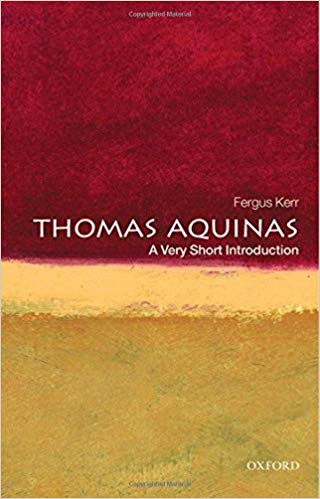
I’ve been a lifelong atheist. Initially this was from growing up in an atheist family [1] and being educated in public schools, and then finally through flirtation with Alt-Left politics. That said, I was singularly unimpressed with the New Atheists such as Richard Dawkins or Christopher Hitchens. From the beginning, I considered them blowhards. Dawkins may have written a very interesting book in The Selfish Gene but he spent most of his public speaking time talking way outside his field of expertise.
I’d like to believe in God, as I agree with Vox Day that Western Civilisation rests upon the three pillars of Christianity, Greco-Roman philosophical heritage, and White DNA [2]. So lately I’ve been ruminating on existential issues, specifically: how to get around my non-belief in God?
You can’t simply make yourself believe in God any more than you can decide to believe the Earth is flat or to believe Street Hustle is a good book. Even if it were possible, submitting yourself to an elaborate manipulation campaign to believe something you don’t is delusion bordering on madness. So, what to do?

There’s no question that Evil exists
One thing I do believe in is Evil. I see it. It’s everywhere. Can one reason from the existence of Evil to the logical conclusion of the existence of God? I’m not so sure because there’s at least one more plausible explanation
You see, if you map all the traditional Christian virtues of prudence, justice, temperance, courage, faith, hope and charity then you are basically describing the K-selected wolf value system. The reverse – Evil – is the r-selected rabbit value system. Thus you can easily make a convincing materialist case that Good and Evil are merely mystical shorthands for our ancestors’ instinctive identification of the differences between wolves and rabbits.
Evil exists because of r-selection. It therefore doesn’t logically compel one to reason one’s way to a belief in God.
If you find this kind of theorising interesting you might like Saint Thomas Aquinas because he wrote literally millions of words on this sort of thing. The most famous of which – Summa Theoligica – is a two million word analysis of the Bible [3]. Obviously I’m not going to read that so I went to a short introduction, this volume in the A Very Short Introduction series. Now, as always happens when engaging with a secondary source, I’m at the mercy of the writer to represent his subject fairly. Fergus Kerr says right from the beginning that Aquinas’ work is so voluminous that he can only scratch the surface.

This fucking dude
So, having scratched it, what are my thoughts?
Imagine I opened my table drawer and pulled out a jumbled mess of iPHone earbuds, string, shoelaces, and USB cables. They are all knotted up like usually happens. Then I say to you, “reinterpret that in the light of Aristotle”. That’s Summa Theologica.

Go on, straighten that shit out
Aquinas was a professional theologian writing in a time of great schisms during the Golden Age of Christianity c.1250. At that time scholarship was reinvigorated by Latin translations of Aristotle from Arabic. Since the collapse of the Greek and Roman empires, the Greco-Roman legacy had been lost to the West and preserved mostly by Muslim scholars. During Aquinas’ time it was rediscovered and he was very impressed. Thus he set himself a project to prove that most of what Aristotle had figured out (and Augustine) was compatible with the Bible.
Throughout this A Very Short Introduction book, Kerr draws examples in how Aquinas is reinterpreting Aristotlean concepts, particularly from his Nicomachean Ethics, to support the equivalent conceptions in the Bible. This was a big deal at the time because it injected a form of humanism into Christianity. Much orthodox thought was that the Bible is a series of strictures on how to live (like a checklist) whereas an Aristotlean Christianity is about internal change and being a virtuous person through internalising virtue. Aquinas was proposing a processual approach to virtue, what modern-day sociologists (if they weren’t all Godless communists) would call ‘interactionist’.
I’m nowhere near familiar enough with either Aristotle or Aquinas to opine on whether the latter did a good job of this. The reason I bring up the tangled cables analogy is because of his laborious methodology and how obtusely it’s presented in Kerr’s book. Here’s a sample paragraph:
“Substance and accidents is of course Aristotelian terminology; yet Thomas explicitly bases his theory on the first theorem of the Neoplatonist Liber de Causis; the first cause can suspend a second cause, and thus keep accidents in existence in the absence of substance of which they were the accidents (ST 3.75.5). In short, for Thomas, this unique phenomenon can be located with a degree of intelligibility only in terms of Neoplatonic ontology of creation. Like the doctrine of creation itself, this understanding of eucharistic consecration completely surpasses anything Aristotle could have understood”
This paragraph is in the middle of a discussion of how Aquinas attempted to explain the possible metaphysical arguments for what happens when Catholics are given bread and wine at service. He wished to examine these three versions:
“the substances of the bread and wine coexist with the substances of Christ’s body and blood; they are annihilated; and they are converted into the substances of Christ’s body and blood”
I’l bet this issue had been puzzling you too.
I really don’t understand why theology exists. The Bible is there, Christians believe it is the Truth, and therefore surely the correct course of action is to simply read the bloody thing [4]. Spending two million words trying to untangle knots that were only ever tangled in the first place because scholars decided to opine and put their own oar in seems like a futile task to me.

Summa Berbalogica
Let’s try a thought experiment. Imagine Johnny Berba was taken seriously as a spiritual leader. A host of Berba Scholars discover his YouTube channel and his hundreds of hours of rambling are translated into Hebrew, then from Hebrew to Arabic, then from Arabic to Latin. A new generation later discovers the Latin translations and, without access to the original videos, tries to reinterpret Berba’s wisdom in the light of Aristotle.
Now imagine reading a Berba: A Very Short Introduction volume. That’s how this one felt. I’m utterly unimpressed. I don’t know if my conclusion says more about Kerr than Aquinas but this book was a waste of time for me. I still hold an open mind on Aquinas, as many very intelligent men say he’s a pivotal thinker, but Kerr’s book doesn’t support their case at all.
If you were thinking “fuck all that, let’s talk about shagging” perhaps you’d like to try my Summa Daygamologic also known as Daygame Infinite
[1] Though now I think “philistine” is more accurate as my parents are snobs who are completely lacking in aesthetic taste.
[2] I believe he calls it “the European nations” but they are all white. Further, I’d say almost every Greco-Roman philosophical tract ever written should be read with the imaginary preface of “this only applies to societies that are almost entirely white.”
[3] Think of it like how Daygame Infinite analyses text chats and date transcripts
[4] Something I’ve never done, as it happens.

